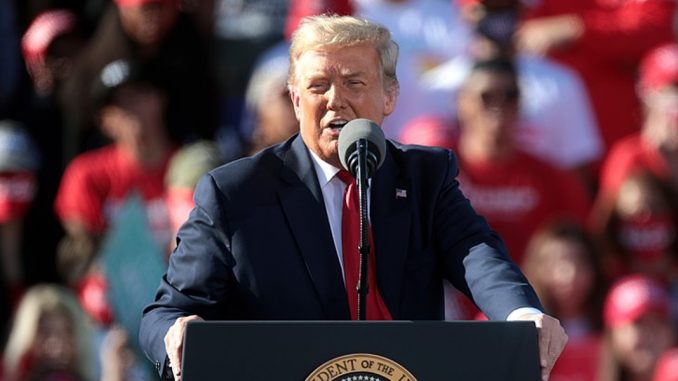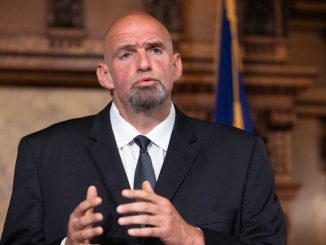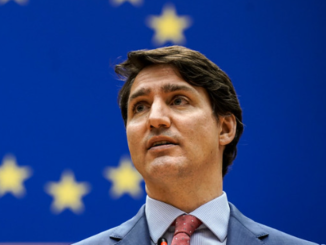
The Republican Party changed their platform in July, striking much of the Pro-Life language.
That caused a stir amongst some Christian conservatives that many thought created apathy towards politics.
But one Christian group didn’t let the apathy stop them from delivering a Trump victory.
Christian conservatives were caught off guard with party platform change
On July 8, the Republican Party changed its platform to make it more “concise” and appealing to a wide swath of American voters.
The most notable for conservative Christians was the opposition to a national abortion ban and recognition that the pro-life battle had been moved to the states for good.
🚨 RNC approves new party platform modeled after Trump’s Agenda 47, it:
-Recognizes abortion as a state issue, and opposes a national ban.
-Promises the largest mass deportation operation in history.
-Urges preventing WW3.
-Supports canceling EV mandates.
-Endorses keeping men…— Bad Hombre (@joma_gc) July 8, 2024
This outraged some Christians, and they quickly spoke out.
Tony Perkins, President of Family Research Council responded by suggesting that the “choreographed process” stopped any discussion, and didn’t allow for due process within the Republican convention.
My statement on the 2024 Republican Party Platform. pic.twitter.com/DbHdnB7yY2
— Tony Perkins (@tperkins) July 8, 2024
“The right to life transcends other political debates and the interests of any and all political parties and candidates,” he said, adding that it was “the right without which no other right has any meaning.”
Perkins wasn’t alone in his fight against the Republican Party’s position on abortion being an issue for the states.
Just days after the changes were made, he spoke with Senator Josh Hawley (R-MO) who reminded viewers that Republicans had been a pro-life party since 1976.
“[Republicans have] been a pro-life party since 1976 when it first entered our platform.”@HawleyMO on why the Republican Party should boldly stand for protecting the sanctity of human life. pic.twitter.com/1M5XNqhoCC
— Tony Perkins (@tperkins) July 10, 2024
“Life is a principle that unites Republicans and should. It is one of the most important things that we have to offer the country in terms of our witness particularly as Christians,” he said.
By the time the election came around, some Christians were nervous about voter turnout.
“As many as 104 million people of faith. . .unlikely to vote”
In September, Dr. George Barna of the Cultural Research Center (CRC) at Arizona Christian University (ACU) conducted a national study of 3,000 voting-age adults.
The goal was to determine whether Christians were planning on voting and what their top concerns were.
The CRC released results showing a “significant drop in voter enthusiasm, particularly among Christian voters who have historically been key players in determining. . .elections.”
An estimated 48% of self-identified Christians surveyed said that they weren’t turning out to vote.
The number was even higher among those who attended non-denominational churches at 54 percent.
— File Manager (@mdbean33) November 7, 2024
In total they expected that “as many as 104 million people of faith [were] unlikely to vote. . .”
Barna called the figures a “gamechanger” considering the average swing state margin in 2020 was just 60,000 votes.
The study also found that the most important issues for these voters fell in line with the current Republican platform.
Inflation, the economy, immigration, and crime all topped the list.
— File Manager (@mdbean33) November 7, 2024
But the concerns of Christian apathy didn’t stop this group from pushing forward.
Christian group fights hard for “unprecedented enthusiasm on the ground”
The Faith & Freedom Coalition (FFC) pushed through the concerns of low Christian voter turnout and did something about the problem.
The group went door-to-door in swing states talking to voters and encouraging them to put their faith first this election.
On November 2, they announced that they had made it to over 8 million doors and they weren’t done yet.
“We’ve seen unprecedented enthusiasm on the ground, interacting with millions of conservative Christians in key battleground states. . .” they wrote in a post on X.
Faith & Freedom Coalition’s grassroots team has knocked on over 8 million doors and we’re still going until Election Day! We’ve seen unprecedented enthusiasm on the ground, interacting with millions of conservative Christians in key battleground states alone.
📰 @ChristianPost pic.twitter.com/DWXfDzo59j
— Faith & Freedom (@FaithandFreedom) November 2, 2024
They continued knocking on doors all the way through Election Day, when they zeroed in on the Keystone State of Pennsylvania.
📍 Pennsylvania
Our grassroots team has knocked on 550,000 doors in the Keystone State and distributed nearly 200,000 bilingual guides to educate voters on precisely where the candidates stand.
Today is the day, Pennsylvania. Have you voted yet? pic.twitter.com/f67Idep3io
— Faith & Freedom (@FaithandFreedom) November 5, 2024
FFC was confident that they could bring the Christians in to vote.
“These voters are coming, and they are coming in historic numbers,” the founder Ralph Reed told the Christian Post.
Reed estimated that by his measure anywhere between 75 percent and 90 percent of self-identified Christians would turn out to vote—and it appears he was right.
FFC is one of many groups that is owed a big thanks by the Republicans after the landslide win on Election Day.



